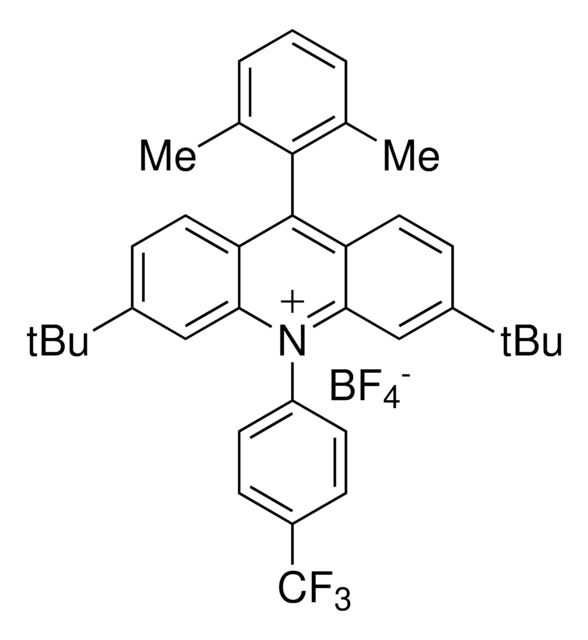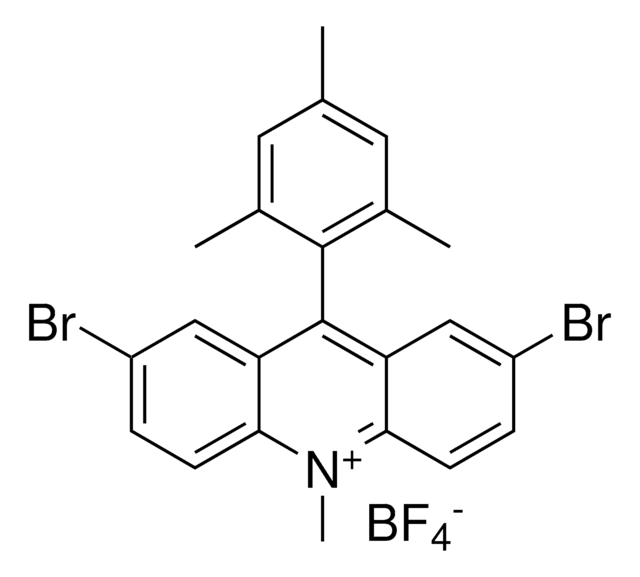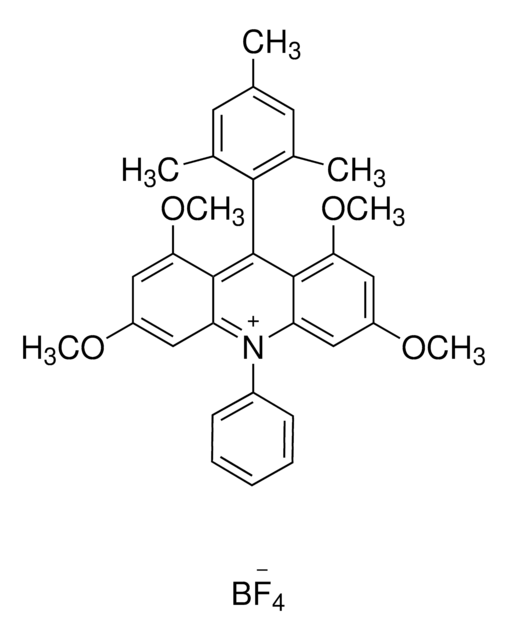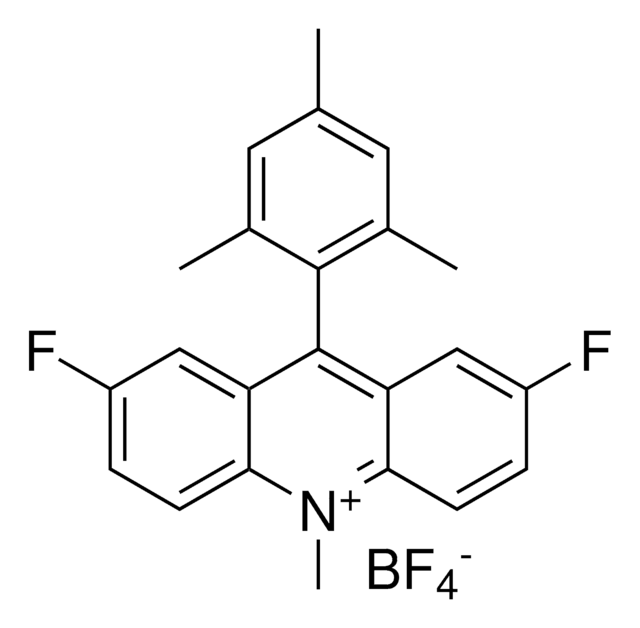909181
2,7-Dimethyl-9-mesityl-10-methylacridinium tetrafluoroborate
About This Item
Recommended Products
form
powder
reaction suitability
reaction type: Photocatalysis
reagent type: catalyst
Related Categories
Application
Product can be used with our line of photoreactors: Including Penn PhD (Z744035) & SynLED 2.0 (Z744080)
related product
Storage Class Code
11 - Combustible Solids
WGK
WGK 3
Flash Point(F)
Not applicable
Flash Point(C)
Not applicable
Choose from one of the most recent versions:
Certificates of Analysis (COA)
Sorry, we don't have COAs for this product available online at this time.
If you need assistance, please contact Customer Support.
Already Own This Product?
Find documentation for the products that you have recently purchased in the Document Library.
Customers Also Viewed
Related Content
Nicewicz lab focuses on reactive cation radical species for selective reactions, advancing synthesis methodologies for various functional groups.
Nicewicz lab focuses on reactive cation radical species for selective reactions, advancing synthesis methodologies for various functional groups.
Nicewicz lab focuses on reactive cation radical species for selective reactions, advancing synthesis methodologies for various functional groups.
Nicewicz lab focuses on reactive cation radical species for selective reactions, advancing synthesis methodologies for various functional groups.
Our team of scientists has experience in all areas of research including Life Science, Material Science, Chemical Synthesis, Chromatography, Analytical and many others.
Contact Technical Service









![[Ir(dFppy)2(dtbbpy)]PF6](/deepweb/assets/sigmaaldrich/product/structures/258/715/c8fe85d5-be71-4ff1-849b-a20766636770/640/c8fe85d5-be71-4ff1-849b-a20766636770.png)